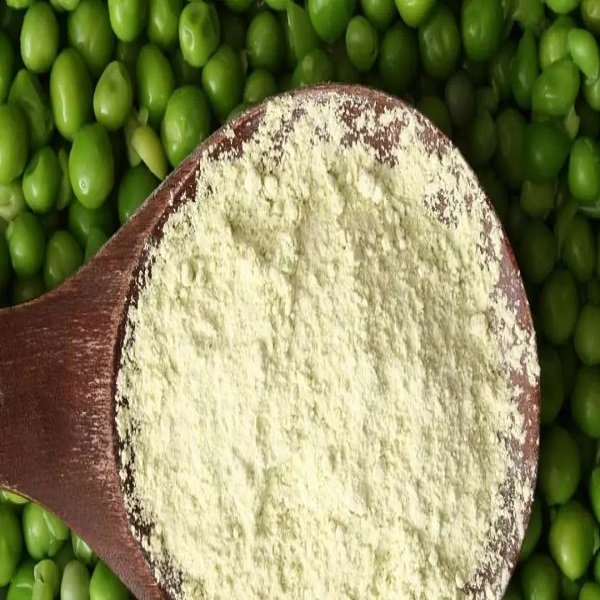- Pea protein is a full-price vegetable protein
Complete plant protein, also called complete plant protein, refers to a type of protein that contains a complete variety of essential amino acids and can maintain life and promote growth and development. Pea protein contains 8 essential amino acids required by the human body, with sufficient content and appropriate proportions to each other.
- Bio-fermented vegetable protein
Pea protein produced by biological fermentation can retain almost all the nutrients of pea protein, and at the same time can eliminate the effect of flatulence caused by the characteristics of beans. , It is easier to be accepted by the intestines and stomach, and improve the absorption rate of protein.
- Peas are allergen-free
The eight major food allergens include milk, eggs, fish, crustacean shellfish, nuts, wheat, peanuts and soy. These eight types of foods or extended foods account for 90% of food allergies. Pea is not classified as a food allergen, which is recognized internationally.
- Pea is NON-GMO
In recent years, the problem of GMO has become very serious. According to the existing data, it is impossible to evaluate the quality of GMO. The most affected in China is GMO soybeans. At present, there is no GMO peas in the world.
- Pea protein increases satiety and controls weight
High-protein foods can reduce gastric growth hormone levels, reduce hunger, and increase satiety, thereby reducing food intake. Pea protein suppresses appetite and delays gastric emptying by forming more peptides, lowering the level of growth hormone, thereby maintaining long-term satiety.
- Pea protein does not contain estrogen
Soy products contain soy isoflavones, which is a kind of estrogen, which affects hormone secretion, metabolic biological activity, growth activity factors and so on. It is a product that is beneficial to women. Not suitable for male compatriots, especially not suitable for young people to eat. Pea does not contain such hormones and is suitable for a wide range of people. It helps young people to replenish protein without affecting their development.
- High biological price of pea protein
The biological valence (The biological valence) is a biological method to evaluate the nutritional value of protein, which refers to the quality of human body protein per 100 grams of food source protein. It is determined by a variety of data. Pea protein contains a complete range of amino acids and has a high availability, which is higher than soy protein and belongs to high biological value protein.
- Pea protein can increase muscle
Pea protein is rich in essential branched chain amino acids (valine, isoleucine and leucine) which play an important role in muscle protein synthesis. Amino acids will begin to accumulate in the muscle mass in the next few hours of training, especially weight-bearing training. The intake of pea protein may maximize the increase in muscle mass, and its effect is comparable to that of whey protein.
- Pea protein does not contain cholesterol
Cholesterol is also called cholesterol. Cholesterol is widely found in animals. High cholesterol can lead to vascular arteriosclerosis, hemodynamic changes, etc., which can increase the risk of cardiovascular and cerebrovascular diseases. Pea protein is a plant protein, does not contain cholesterol, and has a low fat content, which is beneficial to human health.

